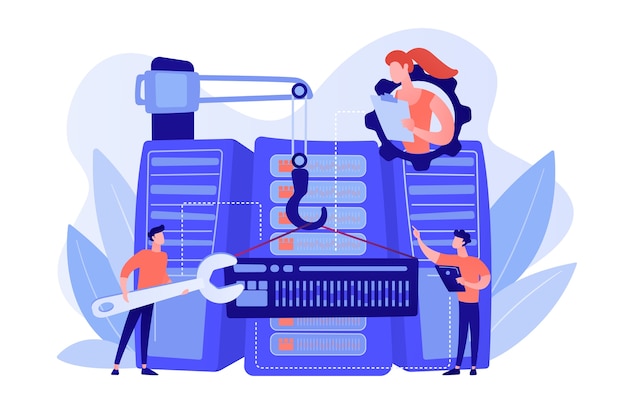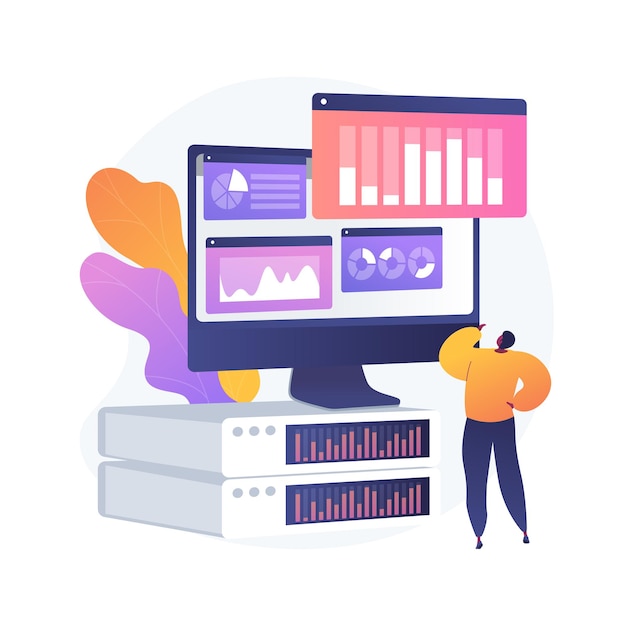


24.06.2021
Một sinh viên năm thứ hai viết cho tôi: “Em học Quản lí hệ thông tin và quan tâm tới khu vực trinh sát doanh nghiệp. Em cầm kĩ năng nào và triển vọng việc làm là gì cho nghề này? Xin thầy giúp cho.”
Đáp: Ngày nay mọi công ti đều tạo ra và thu thập nhiều dữ liệu như dữ liệu bán, dữ liệu mua, dữ liệu lợi nhuận, dữ liệu tổn thất, dữ liệu khách hàng, dữ liệu công nhân, dữ liệu năng suất, dữ liệu về đối thủ cạnh tranh, dữ liệu thị trường v.v. Từ tất cả các kiểu dữ liệu khác nhau này, người quản lí và người phân tích phải tổ chức chúng thành những thông tin nào đó để cung cấp cho người điều hành hay người chủ công ti làm quyết định. Dùng những thông tin này, người điều hành và người chủ công ti có thể đo được kết quả kinh doanh của công ti của họ, biết nó vận hành tốt thế nào, hay lập kế hoạch cho tương lai của công ti. Quá trình thu thập, tổ chức, phân tích và biến những dữ liệu này thành thông tin dùng được được gọi là Trinh sát doanh nghiệp – Business Intelligence (BI).
Trinh sát doanh nghiệp là một trong những việc làm tăng trưởng nhanh nhất trong công nghiệp ngày nay và nhu cầu về các chuyên gia này tiếp tục dâng lên vì có nhiều nhu cầu nhưng ít cung cấp về người có kĩ năng này. Về căn bản việc làm trong BI bao gồm ba kiểu: Kĩ nghệ dữ liệu, Nhà kho dữ liệu và Phân tích dữ liệu.

Vai trò của kĩ sư dữ liệu là làm việc cùng phần doanh nghiệp của công ti để thu thập yêu cầu phải được đáp ứng rồi viết đặt tả chức năng cho tổ kĩ thuật dùng để thiết kế và xây dựng các giải pháp cần thiết. Kĩ sư dữ liệu xác định và tổ chức dữ liệu cần được thu thập cũng như dạng thức của chúng.
Vai trò của chuyên viên Nhà kho dữ liệu bao gồm trong việc xây dựng, lưu giữ, thu thập, duy trì và quản lí các cấu trúc dữ liệu và cơ sở dữ liệu. Có hai vai trò con bên trong nhóm Nhà kho dữ liệu: Kiến trúc sư dữ liệu, người thiết kế cả cấu trúc quan hệ và đa chiều để hoàn thành mục đích được đặt ra trong đặc tả kĩ thuật. Người làm mô hình dữ liệu phát triển các thuật toán và mô hình để trích dữ liệu từ các nguồn khác nhau, biến đổi nó thành dạng mong muốn, và nạp nó vào trong nhà kho dữ liệu.
Vai trò của người Phân tích dữ liệu là phân tích, lựa chọn và biến đổi dữ liệu thành thông tin hữu dụng cho phép người điều hành và người chủ công ti hiểu thông tin này và đặt mọi thứ vào trong hoàn cảnh. Người phân tích dữ liệu làm việc cùng với những người phân tích khác và chuyên gia miền để tạo ra bảng điều khiển, thẻ điểm và báo cáo từ nhà kho dữ liệu.
Ngày nay phần lớn các hệ thống BI đang dùng các sản phẩm phần mềm từ các công ti như Oracle, SAP, IBM và Microsoft. Với nghề trong Trinh sát doanh nghiệp, bạn sẽ cần ít nhất là bằng cử nhân trong khoa học máy tính, kĩ nghệ phần mềm hay quản lí hệ thông tin. Kĩ sư dữ liệu phải có tri thức về cách khu vực doanh nghiệp làm việc và có kĩ năng vững trong qui trình kĩ nghệ yêu cầu. Chuyên viên Nhà kho dữ liệu phải có sự thành thạo trong SQL và công nghệ cơ sở dữ liệu quan hệ cũng như công nghệ cơ sở dữ liệu đa chiều. Họ cũng phải có tri thức về các thủ tục mô hình hoá dữ liệu và kế toán tài chính và các nguyên lí thiết kế nhà kho dữ liệu, các thống kế và các chuẩn. Chuyên viên phân tích dữ liệu phải có tri thức về hiểu biết phân tích dữ liệu và các kĩ thuật báo cáo. Họ phải hiểu các giải pháp bàn điều khiển trinh sát doanh nghiệp, có kinh nghiệm phát triển các Đối tượng doanh nghiệp và các báo cáo doanh nghiệp viết ra. Bên cạnh các kĩ năng kĩ thuật họ phải có kĩ năng trao đổi nói và viết giỏi, kể cả trình bày. Phần lớn mọi người làm việc trong BI đều xuất thân từ chương trình Quản lí hệ thông tin nhưng một số người cũng tới từ khoa học máy tính và kĩ nghệ phần mềm.

—English version—
Business Intelligence Careers
A second year student wrote to me: “I study Information System Management and interest in business intelligence area. What skills do I need and what is the job prospect for this career? Please help.”
Answer: Today every company produces and collects a lot of data such as sales data, purchases data, revenues data, profits data, lost data, customer’s data, workers data, productivity data, competitor’s data, market data etc. From all these different types of data, managers and analysts must organize them into certain information to provide to the executives or company owners to make decisions. Using these information, executives and company owners can measure the business results of their company, knowing how well it operates, or plan for the future of the company. The process of collect, organize, analyze and turn these data into usable information is called Business Intelligence (BI).
Business Intelligence is one of the fastest growing jobs in the industry today and demand for these specialists continues to rise as there is more demand but fewer supplies of people who have this skills. Basically jobs in BI consist of three types: Data Engineering, Data warehouse and Data analytics.
The role of Data engineer is to work with the business part of the company to gather the requirements that must be met then write functional specifications for the technical team uses to design and construct necessary solutions. Data engineer define and organize the data to be collected as well their formats.
The role of Data warehouse specialists is involved in building, storing, collecting, maintaining and managing data structures and databases. There are two sub-roles within the Data warehouse group: Data architects who design both relational and multidimensional structures to accomplish the goals set out in the technical specification. Data modelers develop algorithms and models to extract data from different sources, transform it into the desired format, and load it into the data warehouse.
The role of Data Analytics is to analyze, select and transform the data into useful information that allow executives and company owners to understand this information and put everything into context. Data analytics work with other analysts and domain experts to create dashboards, scorecards and reports from the data warehouse.
Today most BI systems are using software products from companies such as Oracle, SAP, IBM and Microsoft. For a career in Business Intelligence, you will need at least a Bachelor’s degree in computer science, software engineering or information system management. Data engineer must have knowledge of how the business sectors work and have strong skills in requirements engineering process. Data Warehouse specialist must have proficiency in SQL and relational database technology, as well as multidimensional database technology. They must also have knowledge of data modeling and financial accounting procedures and data warehousing design principals, statistics and standards. Data Analytics specialist must have knowledge of an understanding of data analysis and reporting techniques. They must understand business intelligence dashboard solutions, experience developing Business Objects and written business reports. Beside technical skills they must have strong oral and written communication skills, including presentation. Most people who work in BI come from Information System Management program but some also come from computer science and software engineering.
Viễn kiến (Vision) là năng lực nhìn xa vào tương lai để có thể chuẩn bị và lập kế hoạch đối phó. Nó thường được...
Vào mùa hè, tôi thường dạy Kĩ nghệ phần mềm ở các nước khác. Từ năm ngoái, tôi bắt đầu thêm xê mi na Khởi...
Trong quá khứ, khởi nghiệp được coi như điều bí ẩn nơi người công nghệ tạo ra sản phẩm, phá vỡ thị trường và trở...
Có hai loại nhà doanh nghiệp phân biệt: Nhà doanh nghiệp truyền thống là những người bắt đầu công ti riêng của họ dựa trên...